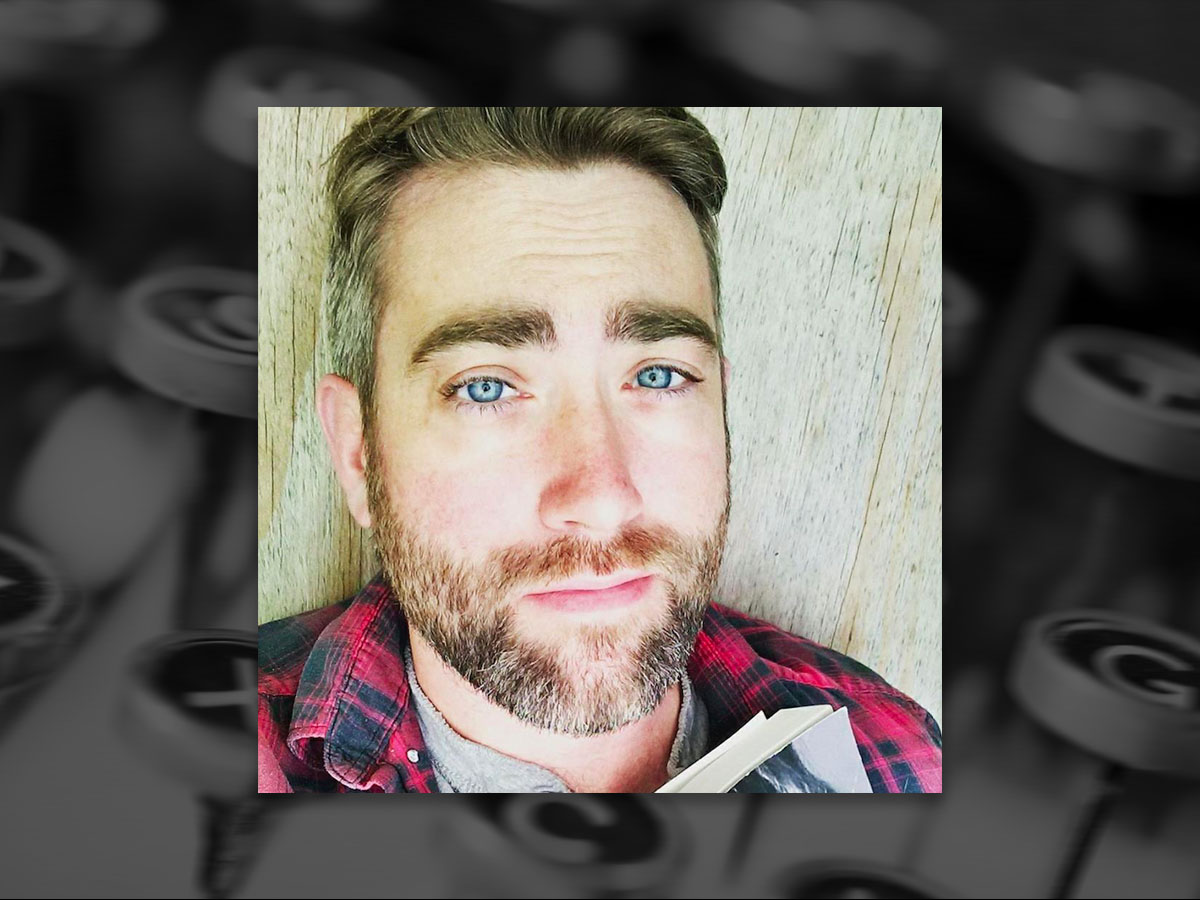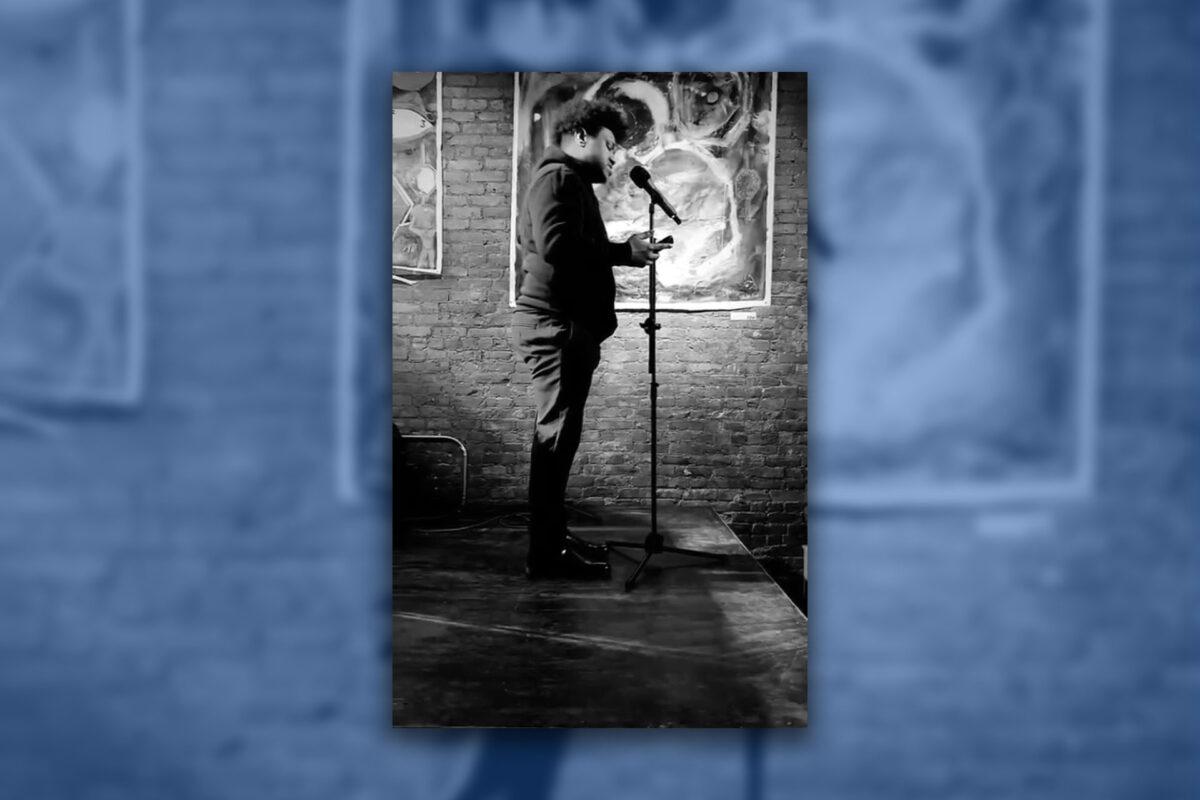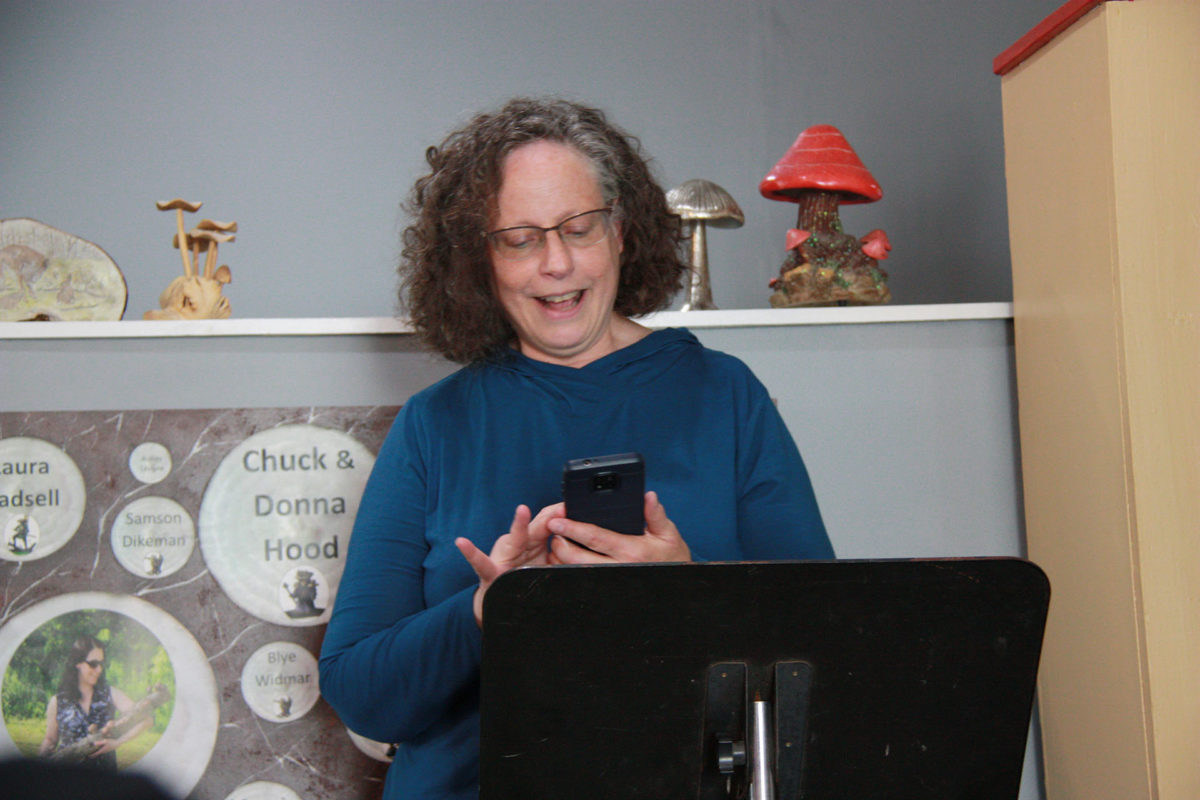By Jeff Doherty
When I saw a hooded ghoul commanding the microphone on Halloween night at an event hosted by The Troy Poetry Mission I had no idea who he was. Now I know that ghoul was James H Duncan, a long-time writer of fiction and Managing Editor of Hobo Camp Review. I recently spoke to him about his craft and learned about the man himself. Here are some excerpts from our conversation:
Jeffery Doherty: I think a pretty good place to start off is, when did you start writing?
James Duncan: I started writing really young; when I was a kid. Little stories for myself and my grandfather had a typewriter that he gave me, and I’d spend way too much time alone. I would write stories about stuff I saw during the day. I’d write my own comics, but I never took it seriously until college. I wasn’t really sure what I wanted to do. I thought about acting, I was a theater major for a while, and then I realized I can’t act; I can’t memorize things. I thought about playwriting and that didn’t quite work out and I got into journalism, then fiction.
—
Jeff D: You have told me about the fact that you write novels, poetry, and sort of flash fiction. Which one do you do most?
James D: I mostly work on novels. I like having a long-term project going in the background of everything else I do. Any given week, I might write three or four poems, in a month I might write just a couple stories really quick. In the last fourteen years, I’ve written about six novels. You’re always revising it. You finish one, you go back and revise another. You do a first draft of another, and you revise the one you wrote two years ago. There’s a continual improvement. I’ve really focused a lot of time on writing novels, even though I haven’t technically published any yet.
—
Jeff D: Where do you draw the source, the canon for your poetry, and your writing?
James D: Stuff I’ve written in the past came from a lot of strange places, like a ‘what if.’ Lately especially the last few years, I’ve been writing flash fiction, and a lot of poetry. I’ve really been trying to mine my personal experiences with other people, and how relationships begin and how they end. I think those are the most fascinating points in time in our relationships with people. ‘How did it start? How did it fall apart, and why?’ I just released a flash fiction collection with fifty stories in it called Nights Without Rain, and all the stories in there kind of examine that. They’re all about relationships, and I try to pull all these little moments of, you know, how you said, ‘how things fell apart with this one person,’ or that one night when you had to have that talk, the last time you saw somebody, what happened.
—
Jeff D: How has the change of time, and the change of technology made your writing different or maybe made it evolve?
James D: I used to carry a notebook with me everywhere. I still have the old notebooks and I can’t read my handwriting at all. Just being able to whip out my phone, jotting down a quick three or four words—in that regard it’s almost poetry in and of itself. Something happens, and you can’t just stand there and type out a paragraph or a sentence, you write three or four quick words. Then you see that later on your phone. Sometimes you’re like ‘what the hell did that mean?’ Other times it can really spawn something. Car crash—red jacket, then you go ‘Oh yeah, that thing that whole time,’ and it all comes flooding back. Being able to do that really quickly without looking for your pen— sometimes I just snap a picture of something, and I’ll go through my phone to look at old pictures, and I’ll go ‘Oh geez, yeah that whole day,’ just that one image can really take you back.
—
Jeff D: I know you do write sometimes for the joy of it, but do you sometimes write to sort of explore, like another place in the world?
James D: Yeah definitely. I write so much poetry, really the flash fiction is kind of an exploration of my past, who I am, how I see the world, what’s happening in the world. It’s nice to step away from that and really try to put yourself in a different place, in a different mindset. Whether it’s a more innocent time, a more dangerous time. Like I said when we were talking earlier about crossing that line from reality to surreal, occultish— other weird stuff, it’s fun to go there and just be somewhere else. Put yourself in a different place and challenge yourself to make it real, to make it realistic; even though I wasn’t alive in the forties, I wouldn’t know what it was like. But if you can write something of that time and someone reads it, and it feels authentic, then you’ve achieved something.
This is James H. Duncan, the writer devoted to improving his craft, changing the stories he does tell with the passing of time. As his work has delved in and out of reality, his pieces strive to tell complex stories about people through their connections to one another. Whatever Duncan writes, he takes his long-held passion of writing along for the ride, regardless of the new adventure. To learn more about James and his work visit http://www.jameshduncan.com
For more information on authors and events please LIKE our page or visit nywriterscompendium.com.
To request an interview contact our Managing Editor Courtney Galligan at info@nywriterscompendium.com.






